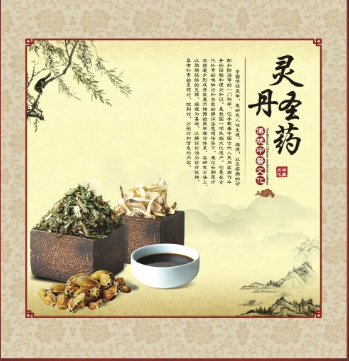Cold is the dominant climatic factor in winter. So cold diseases, though also encountered in other seasons, are usually seen in winter. The invasion of cold into the body is frequently due to cold weather and lack of cold control measures. Sometimes it is due to drench, walking in water and exposure to wind in sweating.
The invasion of wind is either superficial or internal. The former refers to external cold syndrome caused by cold when it attacks the surface of the body and stagnates the defensive qi while the latter refers to internal cold syndrome caused by cold when it directly attacks the internal of the body and impairs the visceral yang-qi.
The following is a brief description of the nature of pathogenic cold and its characteristics in causing diseases.
Tend to Impair Yang
Cold pertains to yin and tends to impair yang. When cold attacks the surface of the body, it will impair yang in the superficies; when it attacks the internal of the body, it will impair the visceral yang. If yang-qi is impaired and cannot warm and transform qi, it will lead to cold syndrome due to functional decline. If cold impairs the superficies, the defensive qi will be stagnated, leading to aversion to cold and anhidrosis.

If cold directly invades the spleen and the stomach, the spleen-yang will be impaired, leading to cold pain in the stomach and abdomen, vomiting and diarrhea; if cold directly attacks shaoyin, it will impair heart-yang and the kidney-yang, leading to aversion to cold, lying with the knees drawn up, dispiritedness, cold hands and feet, diarrhea with undigested food, profuse and clear urine, thin and indistinct pulse.
Tend to Coagulate
Qi,blood and body fluid in the body flow continuously inside the body because they are constantly warmed and propelled by yang-qi. If the pathogenic cold obstructs yang-qi, then qi, blood and body fluid cannot flow freely and will coagulate in the vessels, bringing on pain. If cold attacks the viscera, the visceral qi and blood will be stagnated, causing abdominal pain if cold attacks the muscles and joints, qi and blood in the muscles and joints will coagulate, resulting in pain in the muscles and joints.
Tend to Contract
Cold pertains to yin and tends to restrain the activity of qi, leading to contracture of muscles, tendons and vessels. If cold attacks the superficies, the muscular interstices will be stagnated, the muscles will be contracted and the defensive qi cannot disperse, leading to aversion to cold, anhidrosis and papules; if cold invades the limbs and joints, the tendons and vessels will become contracted, bringing on somatic pain, headache and spasm of the limbs.







